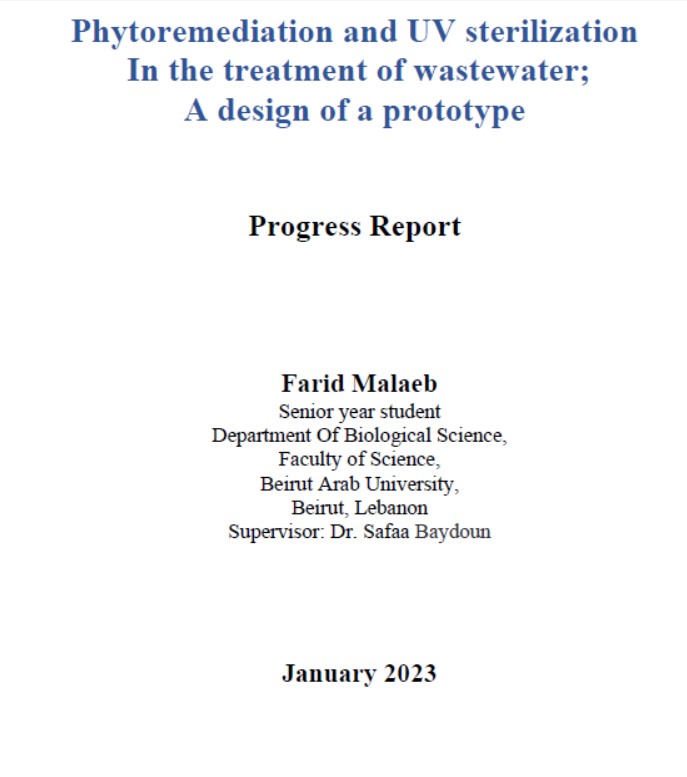Phytoremediation and UV sterilization in the treatment of wastewater; A design of a prototype
 |
rapport May 2023 ; 25 pages
Aut. Farid Malaeb
Ed. BAU - Beirut
Téléchargeable sous format: PdF
Abstract:
The current wastewater management sector in Lebanon, particularly in the Bekaa region, is facing significant challenges. These challenges have had a detrimental effect on the health and livelihoods of local Lebanese communities and Syrian refugees, particularly during the ongoing economic crisis in the country. This project proposes a system that utilizes three main components to enhance wastewater quality and make it suitable for irrigation. The components include sedimentation tanks for solids decantation, a phytoremediation-constructed wetland that utilizes macrophytes to eliminate organic and inorganic contaminants, and a final stage where biological disinfectants are removed through UV sterilization. The duckweed Lemna gibba, which is widely available, was used for its remediation properties, and the removal of 82.77% of BOD and 79.6% of COD was proven by multiple researchers.
Public-Cible:
Mot clef: |
Pays concerné: |
Editeur/Diffuseur: |
|
BAU
-
Université Arabe de Beyrouth - Beirut - Liban |
En cas de lien brisé, nous le mentionner à communication@pseau.org